
OR
NRB under pressure to devise monetary policy to address multitude of problems existing in the economy
Published On: July 4, 2023 09:45 PM NPT By: Republica | @RepublicaNepal
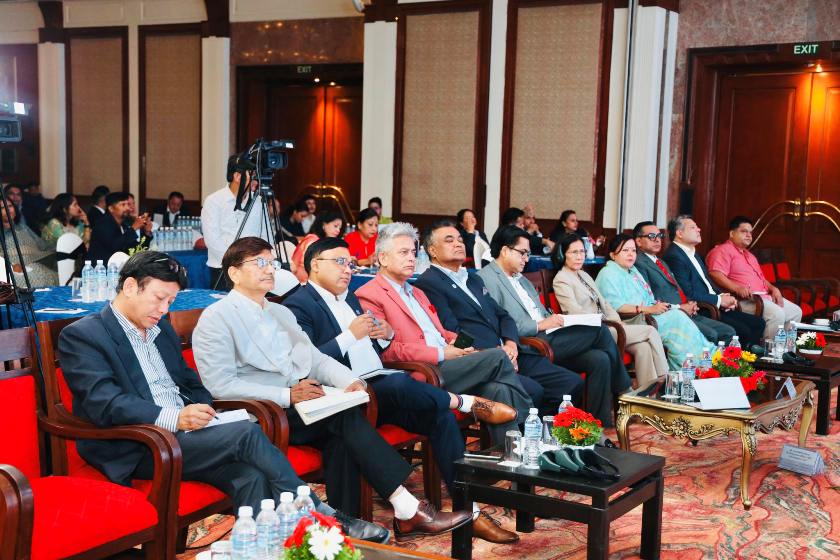
KATHMANDU, July 4: Stakeholders and experts have urged Nepal Rastra Bank (NRB) to endorse a prudent monetary policy that could address the ongoing economic slowdown and problems seen in the country’s financial sector.
Speaking at the ‘Monetary Policy Conference 2023’ organized by the United States Agency for International Development (USAID) on Tuesday, they expressed such views at a time when the central bank is in the final stage of drafting the Monetary Policy for 2023/24. They shed light on multiple challenges that the policy will need to address which include financial sector instability, falling aggregate demand, high cost of doing business due to the exorbitant interest rates, low economic growth and a massive fall in government revenue collection, among others.
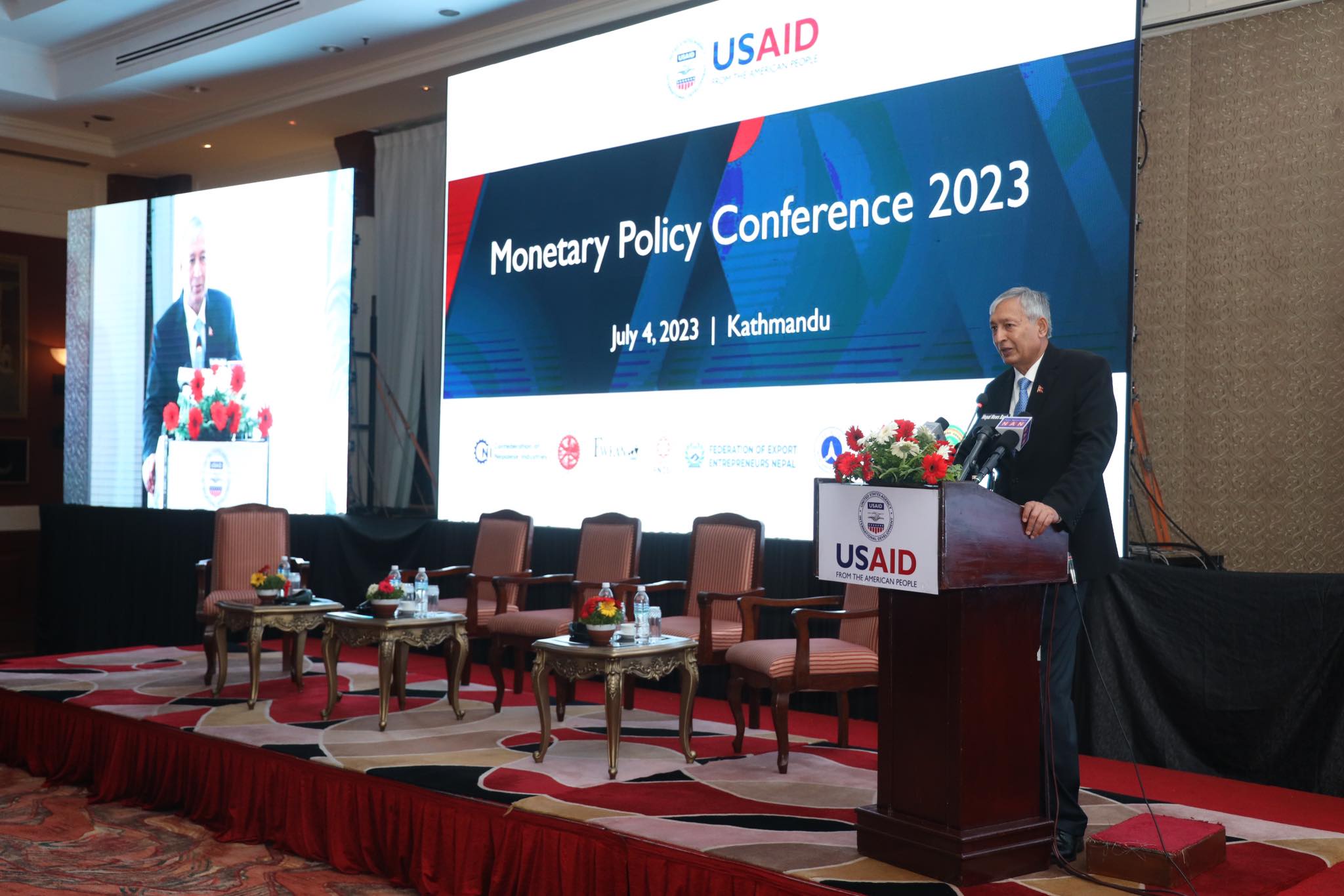 Former Finance Minister Yubaraj Khatiwada said the monetary policy will have to look for improving the flow of quality loans rather than the volume of credit to be issued by the banks. According to him, the loans issued under the headings of working capital and overdrafts were mainly utilized in the real estate businesses.
Former Finance Minister Yubaraj Khatiwada said the monetary policy will have to look for improving the flow of quality loans rather than the volume of credit to be issued by the banks. According to him, the loans issued under the headings of working capital and overdrafts were mainly utilized in the real estate businesses.
“It is not important by what percent the loan amount increased, rather where the credited amounts were utilized is more meaningful,” Khatiwada said. “The credit expansion now has to benefit more the production sectors including small and medium enterprises.”
At present, the private sector is making a hue and cry saying that the excessive interest rates charged by the banks are hampering their businesses. They have termed the NRB’s basket policy for the small and medium enterprises (SMEs) and the big businesses ‘unfair.’
Bhawani Rana, former president of the Federation of Nepalese Chambers of Commerce and Industry, said a larger portion of the SMEs are women operated. “If the NRB ignores restructuring the loans for these SMEs, many of them are certain to close,” she said.
Analraj Bhattarai, banking expert at the Confederation of Nepalese Industries, however said that the interest rate at present is not too high. “Nepal has witnessed a similar situation in its financial sector in the past, however, the private sector is now panicked just because of the falling demand,” he said.
Bhattarai said the country’s economy including its financial sector which was once under high influence of realty sector’s bubbles, is now heading toward correction. He stressed that the monetary policy now needs to focus more on price control than any other issue.
Santosh Koirala, vice-president of Nepal Bankers’ Association, said the problem arose as the NRB looked only at revoking the facilities given at the time of the coronavirus pandemic. “But the stern measures that were enforced at that time have completely been ignored for timely revision,” he said.
According to the NRB officials, the central bank is likely to endorse its new monetary policy by next week. The central bank is in the process of collecting the people’s feedback for this purpose.
In her remarks, Chief of Party of USAID Trade and Competitiveness Agnes Luz said that the goal of USAID Trade and Competitiveness is to strengthen the ability of Nepal’s private sector to compete in global value chains. “A key element to achieving this goal is the promotion of a favorable business enabling environment and investment climate, including policies that facilitate access to finance and encourage investment on business expansion,” she said.
She also said that the USAID Trade and Competitiveness is committed to working together with the private sector and the government to put in place policies that promote the competitiveness and resilience of Nepal's private sector for a vibrant and inclusive economy.
Monetary policy has to be flexible on loans provided to the woman entrepreneurs: FWEAN
The Federation of Women Entrepreneurs’ Association of Nepal (FWEAN) has urged Nepal Rastra Bank (NRB) to be lenient on loans provided to the women-operated small and medium enterprises.

The central bank has asked banks and financial institutions to provide 15 percent of the designated loan amounts to the SMEs. Gyawali urged the central bank to provide at least five percent of this amount to the women-operated SMEs.
You May Like This
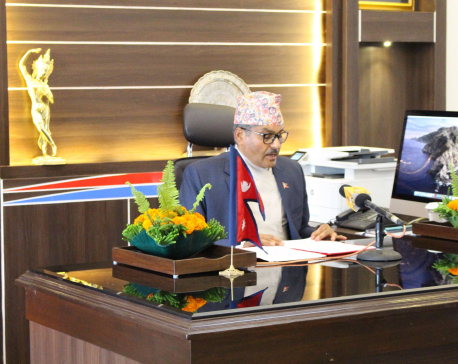
Monetary policy cannot have all the tools to solve all economic problems: NRB Governor Adhikari
KATHMANDU, July 20: At a time when Finance Minister Dr. Prakash Sharan Mahat is publicly assuring that all the problems... Read More...
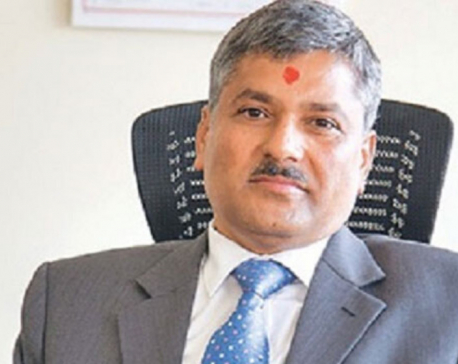
Monetary policy will address current economic problems: NRB Governor Adhikari
KATHMANDU, July 10: Nepal Rastra Bank (NRB) Governor Maha Prasad Adhikari on Sunday urged the private sector including banks not to... Read More...

VIDEO: NRB Governor unveiling monetary policy for fiscal year 2021/22
KATHMANDU, August 13: The Governor of Nepal Rastra Bank (NRB), Maha Prasad Adhikari is unveiling the monetary policy for the... Read More...




Just In
- NEA Provincial Office initiates contract termination process with six companies
- Nepal's ready-made garment exports soar to over 9 billion rupees
- Vote count update: UML candidate continues to maintain lead in Bajhang
- Govt to provide up to Rs 500,000 for building houses affected by natural calamities
- China announces implementation of free visa for Nepali citizens
- NEPSE gains 14.33 points, while daily turnover inclines to Rs 2.68 billion
- Tourists suffer after flight disruption due to adverse weather in Solukhumbu district
- Vote count update: NC maintains lead in Ilam-2












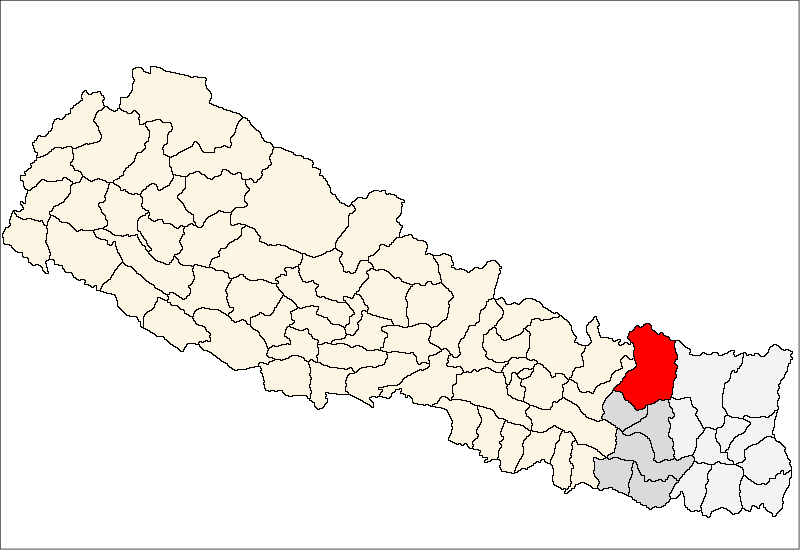
Leave A Comment